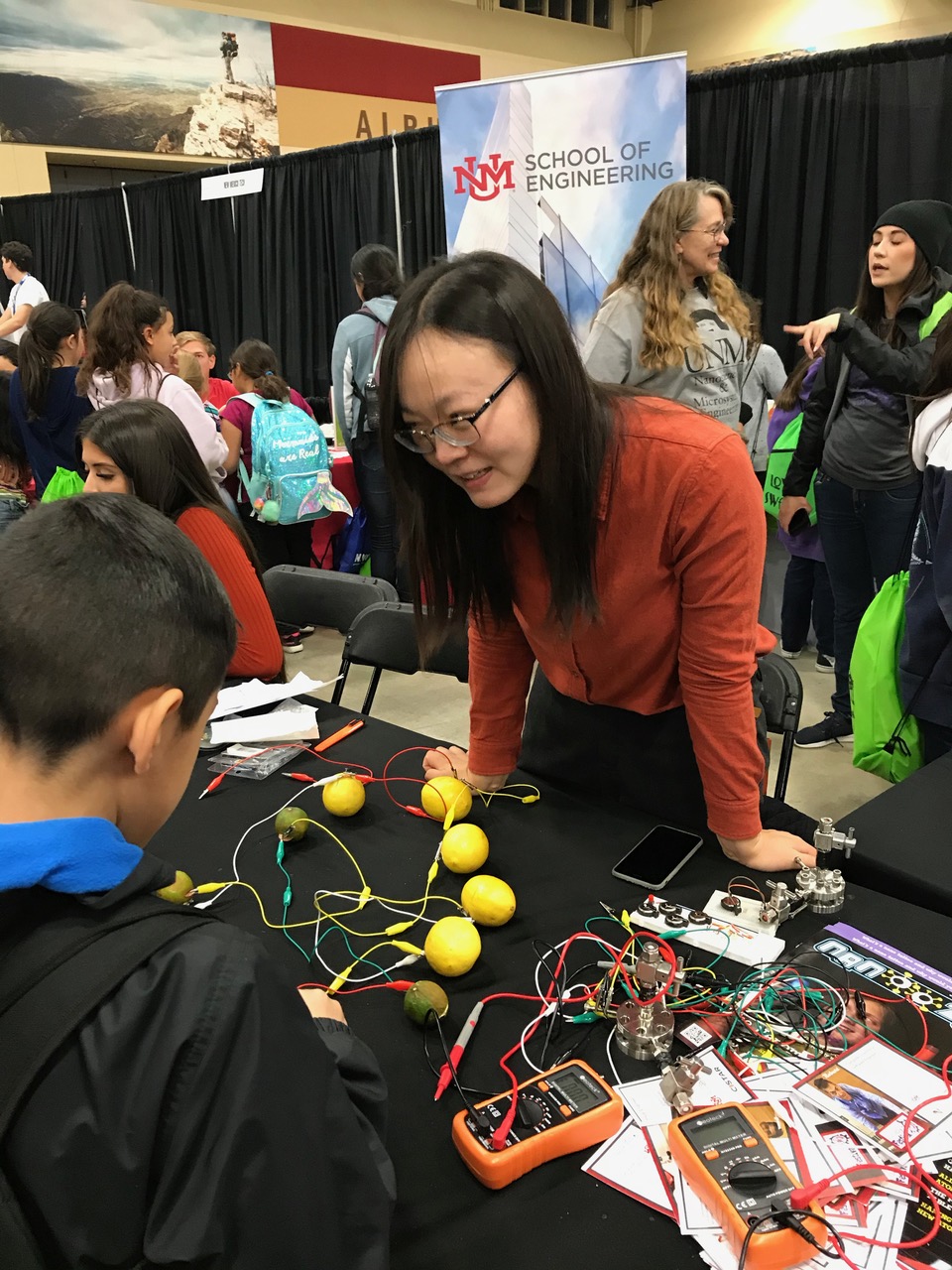Recent News
UNM Engineering team wins ASEE best paper for work on first-year engineering course
July 17, 2025
New director will enhance interdisciplinary engineering learning opportunities
July 2, 2025
Final SIRI cohort visits UNM campus
June 30, 2025
Perfetti receives ANS Landis Engineering Achievement Award
June 26, 2025
News Archives
NSF project to explore new solutions for longer-lasting, affordable batteries
January 24, 2023 - by Kim Delker
Our rapidly-expanding technology needs are fueling a robust demand for battery and electrical energy storage technologies in industries ranging from portable devices to transportation.
Although rechargeable lithium-sulfur (Li-S) batteries offer a great promise for reversibly storing large amounts of electrical energy at a moderate cost, those batteries are problematic due to the chemical reaction process (the complicated solution phase reaction of sulfur and poor transport of electrons and ions across the interfaces of the battery) that negatively impacts their longevity.
But a new project at The University of New Mexico is addressing those challenges.

Shuya Wei at an outreach event in 2019 that demonstrates some of her battery research with lemons.
Shuya Wei, an assistant professor in the Department of Chemical and Biological Engineering, is the principal investigator on a project titled “Rational Design and Engineering of Composite Electrolytes for All-solid-state Li-S Batteries.” The $202,000 grant begins Feb. 1, 2023, and concludes Jan. 31, 2025.
Wei said the main objective of the project is to develop composite solid electrolytes to develop all-solid-state lithium-sulfur batteries with a high capacity and a long lifetime, which would provide guidance on ways in which to design batteries that overcome their current limitations.
The project will study the science that governs the stability of electrode-electrolyte interfaces in all-solid-state Li-S batteries. Wei will work with researchers from Idaho National Laboratory to develop the capability to study ion transport across multiple interfaces in solid-state Li-S batteries utilizing state-of-the-art spectroscopy technologies.
The project will allow UNM students intern work with Idaho National Laboratory, where they will gain valuable research experience in the field of electrochemical energy storage and conversion, and provide opportunities for academic journal publications.
This grant will also provide a fellowship to an assistant professor and training for a graduate student as a Research Infrastructure Improvement Track-4 EPSCoR Research Fellow.
